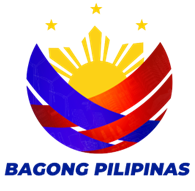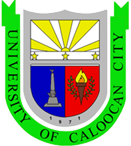About University of Caloocan City
The University of Caloocan City (abbreviated as UCC) is a public-type local university established in 1971 and formerly called Caloocan City Community College and Caloocan City Polytechnic College. Its south campus is located at Biglang Awa St., Grace Park East, 12th Avenue, Caloocan, Metro Manila, Philippines (also known as EDSA/Biglang Awa Campus) and the north campuses are Camarin Business Campus, Congressional Campus, and Engineering Campus (Barangay 176, Bagong Silang).
University History
On July 1, 1971, the Secretary of Education authorized the first-year operation of the proposed Caloocan City Community College. For this, Municipal Ordinance No. 1495 appropriated the amount of P23,400.00. Its purpose was to implement the national development goal which assures the maximum participation of all people in the attainment and enjoyment of the benefits of growth and provide quality educational opportunities to its indigent but deserving constituents.
On June 22, 1972, the College was authorized to open the second year of the general education course and the one-year secretarial on a P35,100 city budget.
On June 7, 1973 the secretary of Education approved the third year operation of the College with BS Industrial Education and the BS Business Technology appropriating therefore P36,760 (Mun. Ord. Nos. 2020 and 2140).
On March 25,1975 Ordinance No. 2295 provided for the charter of the renamed Caloocan City Polytechnic College. A fire gutted the High School PTA Building in 1984 forced the College to move to the nearby elementary school before transferring to the Sangandaan site. In June 1996, Buena Park and Camarin Annexes became operational, while Tandang Sora Annex at 7th avenue started classes in November, 2002.From an enrollment of 42 in 1971, the College had 3600 in 2000.
In June 1996, it offered two(2) masteral courses in public administration and in education. To make the College more responsive to the needs of City's constituents, government employees with 60 undergraduate units were enrolled as third year students in the special Bachelor in Public Administration in 1997.
On February 9, 2004, after 33 long years, Municipal Ordinance No. 0379 converted the Caloocan City Polytechnic college into the full-fledged University of Caloocan City.
Vision
A local government university with global quality of education imbued with desired knowledge, skills, and values for academic excellence, professional development, civic consciousness, resilient citizenry, technological advancement, ecological sustainability and continual improvement.
Mission
To develop academically excellent, professionally progressive, industry sensitive, environmentally and technologically conscious, globally competitive and resilient graduates through quality instruction, functional co-curricular activities, responsive community immersion programs, intensive research and development and continually improved quality management system molding them to become effective social and cultural agents of change.
Goals
- To enhance the pedagogical and professional competence of faculty members especially in the optimization of innovative and relevant teaching approaches, strategies and techniques;
- To design and develop programs for community development, environmental consciousness, individual and cultural differences awareness, and gender equality;
- To strengthen connection between University linkages and its extension services, the communities it serves, industry partners, and professional organizations;
- To maximize individual full potentials in understanding and managing the needs and expectations of the culturally diverse working environment;
- To create more immersion programs for students to become graduates with increased self-esteem, social competence and resiliency in the future;
- To intensify students' engagement in both academic and co-curricular endeavors within the University and in the local and international contexts;
- To be research-oriented and globally responsive for the significant improvement of the country in general and in the city in particular;
- To inculcate values and principles that promote academic excellence, love of country, gender sensitivity, attitude of gratitude, culture of sharing and respect for humanity; and,
- To provide and maintain state-of-the-art facilities and equipment so as to ensure a more conducive learning environment.


